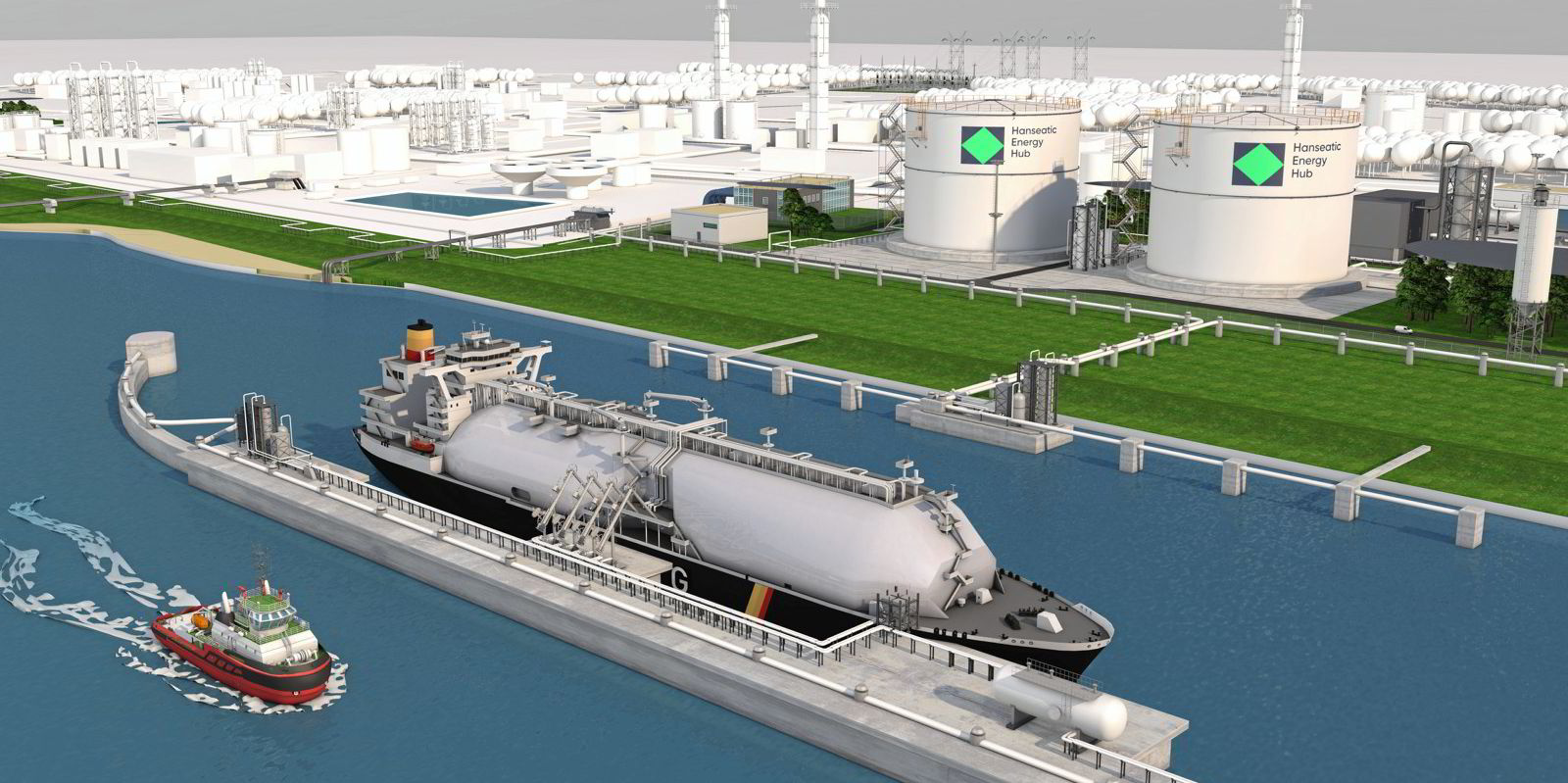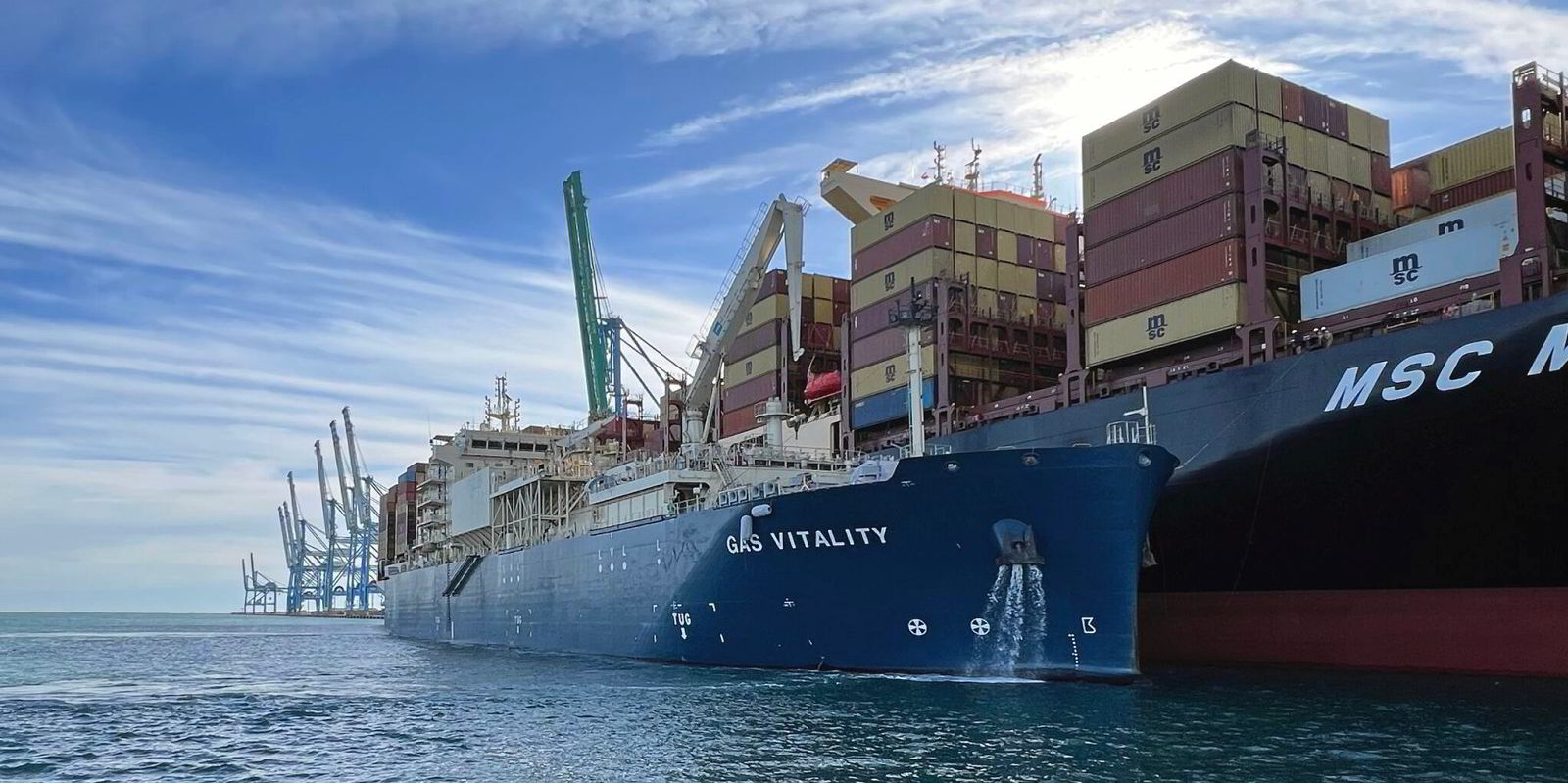Germany’s Hanseatic Energy Hub has given the go-ahead for its long-planned €1bn ($1.08bn) onshore LNG terminal that will be developed as an ammonia-ready facility.
The private consortium comprising Partners Group, Enagas, Dow and the Buss Group said it had taken a final investment decision on the terminal capable of handling 13.3bn cbm of natural gas per year after securing financing.
Tecnicas Reunidas and its partners, FCC and Enka, have been signed up to build what the consortium is dubbing a “future-flexible energy hub” in the Stade industrial park. A groundbreaking ceremony is planned in the coming weeks.
Enagas is acting technical manager for the construction and will later take on the operation of the terminal. As a result, the Spanish energy company is increasing its shareholding from 10% to 15%.
Former Provnav managing director Jan Themlitz becomes chief executive of Hanseatic Energy Hub.
The terminal, which has been in the planning and approvals stage for six years, is due to be in operation from 2027.
The partners said Germany’s first land-based gas import terminal will initially start as an import facility for LNG, liquefied biomethane and synthetic natural gas.
Later they anticipate it will also be used to ship in ammonia as a CO2-neutral, hydrogen-based energy source.
The 174,000-cbm floating storage and regasification unit Energos Force (built 2021) arrived at the Stade site this month to start LNG imports.
Hanseatic Energy Hub said that when the land-based facility goes into operation the FSRU, which the federal government charters, will leave the site.
European energy suppliers EnBW, SEFE and CEZ have booked 90% of the long-term capacity, with the rest reserved for short-term bookings.
The long-term contracts include the option to later switch to climate-neutral, hydrogen-based energy sources, the company said.
Partners Group managing director Carsten Konig said: “As an LNG terminal at a strategic location, HEH will play an important role in securing energy supplies and supporting the energy transition in Germany and Europe.”





